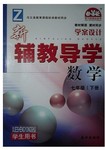题目内容
1.Most of the time,people wear hats to protect themselves from harsh weather conditions.Hats are also worn to show politeness and as signs of social position.But nowadays,hats,especially women's hats,are much more than that.More exactly,hats have changed into fashion and style symbols by many movie stars.What's more,people now consider many different features(特点) when choosing even a simple hat.Many designers point out that,when choosing the right hat,it's important to consider the color of your skin as well as your hair,your height,and the shape of your face.First of all,the color of the hat should match the color of your skin and hair.For instance,black hats should be avoided if you are dark skinned.If a purple hat is placed on top of red hair,one will look as attractive as a summer flower.Second,the height of the hat is also an important point.Tall women should not go for hats with tall crowns,just as short women should choose hats with upturned brims to give the look of height.Third,and most importantly,the shape of the face decides the kind of hat one should pick.A small,gentle hat that fits the head looks good on a small face.However,women with big,round faces should choose a different style.
As the saying goes,"Fine feathers make fine birds."A good hat can not only help your dress but also support your features,so why not choose the best possible one next time you want to be in public?
63.What does the underlined word"harsh"in Paragraph 1probably mean?C
A.goodB.strangeC.poorD.different
64.According to the article,which of the following women would look most attractive?B
A.A big-faced woman who wears a small,nice hat.
B.A short red-haired woman who wears a purple hat.
C.A tall woman who wears a hat with a huge upturned brim.
D.A small dark-skinned woman who wears a black hat with a tall crown.
65.What does the last paragraph suggest?B
A.Hats are worn on the head to keep warm.
B.Hats can help you look better in public.
C.Hats are not as important as character.
D.Hats can make you look much taller.
66.What is the best title for the article?C
A.How to Show Your Social Position.
B.How to Improve Your Features.
C.How to Choose a Proper Hat.
D.How to Design a Nice Hat.
分析 本文属于说明文阅读,作者通过这篇文章主要向我们描述了帽子不仅仅只有防寒作用,还有许多社会功能.告诉我们如何选择一顶合适的帽子.
解答 63.C.词义推测题.根据日常生活常识知识及句意可以推测出harsh为"严厉的",故可以用poor代替.故C正确.
64.B.细节理解题.根据文章第二段If a purple hat is placed on top of red hair,one will look as attractive as a summer flower..可以判断出最具有吸引力的女性.故B正确.
65.B.细节理解题.根据文章最后一段A good hat can not only help your dress but also support your features,so why not choose the best possible one next time you want to be in public?可以得出答案.故B正确.
66.C.主旨大意题.文章作者主要讲述了怎么选择合适的帽子.故选用标题How to Choose a Proper Hat.故C正确.
点评 考察学生的细节理解和推理判断能力,做细节理解题时一定要找到文章中的原句,和题干进行比较,再做出正确的选择.在做推理判断题不要以个人的主观想象代替文章的事实,要根据文章事实进行合乎逻辑的推理判断.

练习册系列答案
 新辅教导学系列答案
新辅教导学系列答案 阳光同学一线名师全优好卷系列答案
阳光同学一线名师全优好卷系列答案
相关题目
10.To understand how Americans think about things,it is necessary to understand"the point".Americans mention it often"Let's get right to the point",they will say"My point is …""What's the point of all this?"
The"point"is the(51)Bor piece of information that Americans suppose is,or should be,(52)A of people's thinking,writings,and spoken comments.Speakers and writers are supposed to"make their points clear",(53)C that they are supposed to say or write clearly the idea or piece of information they wish to (54)C.
People from many other cultures have different ideas about the (55)A.Africans traditionally tell stories that express the(56)D they have in mind,rather than stating out"the point"clearly.Japanese traditionally speak (57)B,leaving the listener to (58)A what the point is.(59)D,while an American might say to a friend,"I don't think that coat goes very well with the rest of your outfit",a Japanese might say,"Maybe another coat would look even (60)B than the one you have on."Americans (61)A a person who"gets right to the point".Japanese are likely to consider such a person lacking thoughtfulness and sympathy if not (62)C.
The Chinese and Japanese languages are characterized by vagueness and ambiguity(模棱两可).The precision and directness Americans associate with"the point"cannot be (63)B,at least not with any grace,in Chinese and Japanese.Speakers of those languages thus have to (64)A a new way of reasoning and expressing their ideas (65)D they are going to communicate satisfactorily with Americans.
The"point"is the(51)Bor piece of information that Americans suppose is,or should be,(52)A of people's thinking,writings,and spoken comments.Speakers and writers are supposed to"make their points clear",(53)C that they are supposed to say or write clearly the idea or piece of information they wish to (54)C.
People from many other cultures have different ideas about the (55)A.Africans traditionally tell stories that express the(56)D they have in mind,rather than stating out"the point"clearly.Japanese traditionally speak (57)B,leaving the listener to (58)A what the point is.(59)D,while an American might say to a friend,"I don't think that coat goes very well with the rest of your outfit",a Japanese might say,"Maybe another coat would look even (60)B than the one you have on."Americans (61)A a person who"gets right to the point".Japanese are likely to consider such a person lacking thoughtfulness and sympathy if not (62)C.
The Chinese and Japanese languages are characterized by vagueness and ambiguity(模棱两可).The precision and directness Americans associate with"the point"cannot be (63)B,at least not with any grace,in Chinese and Japanese.Speakers of those languages thus have to (64)A a new way of reasoning and expressing their ideas (65)D they are going to communicate satisfactorily with Americans.
| 51.A.word | B.idea | C.place | D.time |
| 52.A.at the center | B.on the basis | C.on the part | D.beyond the reach |
| 53.A.thinking | B.explaining | C.meaning | D.stating |
| 54.A.discuss | B.remember | C.express | D.criticize |
| 55.A.point | B.information | C.reasons | D.feelings |
| 56.A.comments | B.meanings | C.secret | D.thought |
| 57.A.frankly | B.indirectly | C.reluctantly | D.truly |
| 58.A.figure out | B.search for | C.make up | D.look over |
| 59.A.Otherwise | B.However | C.Moreover | D.Thus |
| 60.A.tighter | B.better | C.thicker | D.longer |
| 61.A.value | B.forgive | C.punish | D.insult |
| 62.A.sensitive | B.foolish | C.rude | D.loyal |
| 63.A.corrected | B.achieved | C.changed | D.explained |
| 64.A.learn | B.consider | C.suggest | D.decide |
| 65.A.although | B.because | C.until | D.if |
11.How do you think your parents would react if they _______ a cloned copy of you in the street?( )
| A. | see | B. | saw | C. | have seen | D. | will see |